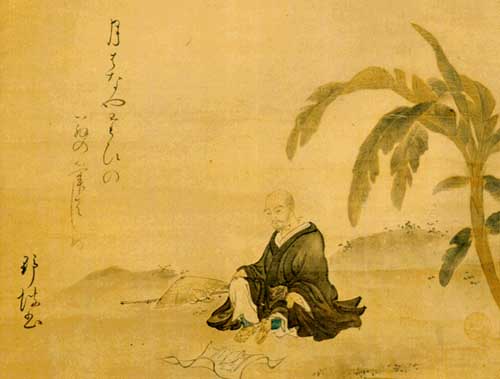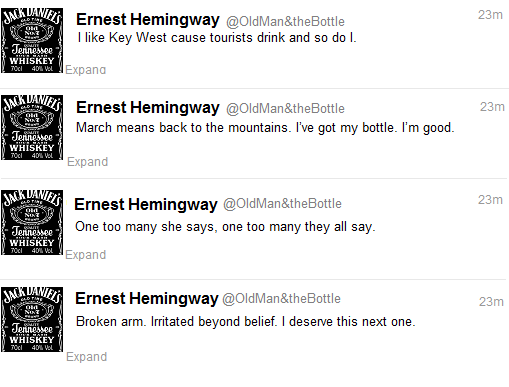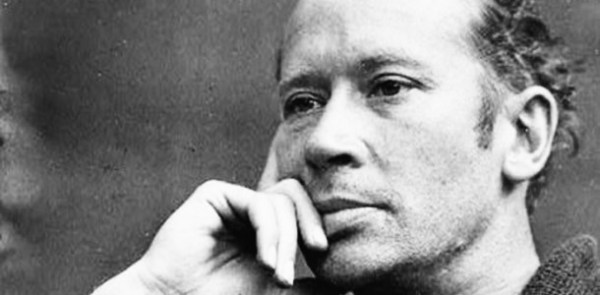Quick! Off of the top of your head name five, any five, minimalist writers. No need to dust off some old Norton anthology; just click over to a little website called "Twitter," where 140 characters is all you get to make your point. These days, we crave minimalism like we crave our daily caffeine boost, and Twitter is a veritable mega-Starbucks of pithy prose. But what would the great minimalist pioneers have to say on the ubiquitous network? Here’s a quick look at some important minimalists throughout history, and their Tweets.
Sappho (630-570 BCE)
Greek lyric poet Sappo is known
for her simple, beautiful lines, as well as her blatant distaste for men.
Basho (1644-1694)
Matsuo Basho is, without a doubt, the father of the
haiku, one of the most minimal forms of poetry in existence. Twitter has the potential to become a haiku haven, as its format
is perfect for the 5-7-5 syllable range and our growing aversion to reading anything
longer than 140 characters.
Ernest Hemingway (1899-1961)
Perhaps the most influential American minimalist,
Hemingway’s understated style set the tone for much of the writing of
the 20th century and beyond. If Hemingway were alive today, he might
bitch about Twitter, but I’m sure he’d have an account, and we’d be privy to many a
drunken late-night tweet.
Nick Virgilio (1928-1989)
Speaking of modern haikus, Nick Virgilio is a great
example of how one minimalist style can transcend both centuries and
language. Most prolific in the 1960s,
Virgilio was one of the first prominent figures to popularize the haiku in
America after it had been, for the most part, forgotten. He broke the rules and
messed with the syllables; I doubt he'd have a problem with hashtags.
E.E. Cummings (1894-1962)
Cummings is famous for taking words and syntax and grammar and turning it all on its head. Twitter users sometimes do that unintentionally, but I’m sure Cummings would get a kick out of it nonetheless.
Raymond Carver (1938-1988)
Raymond Carver believed that if something could be
written in twenty-five words, it could be written in five. In his early work, this distinctive style was
almost overwhelmingly due to his editor, Gordon Lish, whose heavy-handed efforts became the stuff of controversy after Carver's death. I think he’ s Twitter ready.
Charles Bukowski (1920-1994)
Charles Bukowski helped to propagate the genre of Dirty Realism. He delved into the underbelly of American life and culture and did so in a strict, no-nonsense, and epically obscene manner. Twitter could have been of great use to him.
story by Gena LeBlanc



















 A Black Balloon Publication ©
A Black Balloon Publication ©